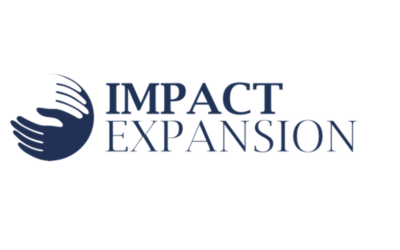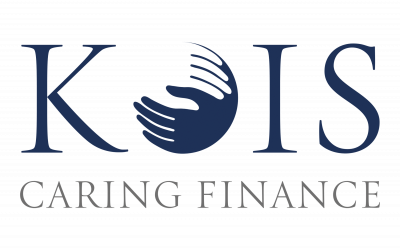BeCode: Training vulnerable job seekers to the digital jobs of tomorrow
Project details
BeCode aims to tackle the digital skill gap and unemployment issue all at once. By offering intensive digital training to vulnerable populations, this Belgian NGO already managed to put 65% of its trainees back to work. From 2020 to 2025, BeCode will receive financing through a Social Impact Bond structured by KOIS. Actiris, the Brussels Employment Agency, will act as the outcome funder. The funding will support the training an additional 450 beneficiaries, with a focus on non-EU immigrants and women.Tackling the skill gap & unemployment issue all at once
The Belgian job market is facing a shortage of digital skilled workers, which is set to grow. In 2030, at least 15.000 software developers & IT consultants positions will be vacant if no measures are taken. At the same time, 90.000 people were jobless in Brussels in January 2019, 19% of those being non-EU citizens. In addition to the socio-economic issues experienced by job seekers, this situation has a significant cost for public finances.
The digital training of job seekers is thus essential to tackle the skills gap and unemployment issue simultaneously. The IT sector is effectively well-suited for people remote from the job market: few technical prerequisites for interesting, stable & well-paid jobs.
Vacant IT positions in 2019
Unemployed people in Brussels in January 2019
BeCode: a training to provide vulnerable populations a way into the job market
Aware of this opportunity, BeCode developed a training & support centre aiming to ensure the entry of vulnerable populations in the job market. Candidates are selected based on their motivation only. They are then intensively trained for 7 months on programming skills and behavioural competencies. Inspired by Simplon.co in France, the BeCode method focuses on active pedagogies and field experience to prepare students for their future job. An employment mediator also brings them in contact with companies wanting to hire them for an internship and potentially, a long-term contract.
Terms of the bond
Launch
2020
Duration
5 years
Amount
€ 2.5M
Expected return
2-6% IRR
Read on
A proven method for success
Since its launch in 2017, BeCode has showed outstanding results with an employment rate close to 65%, largely beyond the average of 50% reached by the public body in charge of vocational training in Brussels.
BeCode has also proved its ability to reach vulnerable target groups: 75% of BeCode’s Brussels trainees are job seekers, 70% have at most a high school degree, 10% are non-EU immigrants and 22% are women, which is more than twice as much as the proportion of women usually observed in the IT sector in Belgium (10%).
Financing 450 more participants through a Social Impact Bond
Given the demonstrated capacity of BeCode to put vulnerable job seekers back to work, Actiris, decided to provide financial support for the training of 450 additional beneficiaries, using a SIB for the third time. The objective of the SIB will be to test the effectiveness of BeCode on an audience more strongly composed of women and non-EU immigrants,which have been identified as “priority” target groups by Actiris. Thanks to its strong training experience acquired over the past 2 years and a growing network of hiring companies – including in a COVID-19 context where digital competencies are more important than ever, BeCode is very confident that it will be able to meet the SIB’s objectives.
With a structuring in a record time of 2.5 months, the BeCode project is the proof that SIBs can be a powerful and efficient tool to leverage private funding for social projects in need of sustainable financing over several years
Expected Impact of the DIB
job seekers start the BeCode digital training, of which 135 women and 113 non- EU immigrants
Impact Story: Rawaldeep & Elisa
When I arrived in Belgium 3 years ago, I couldn’t find a job in IT because I didn’t master the right technologies. By following the BeCode training, I was able to learn the most recent programming languages and to build a strong network in the web development industry. All through a course that was adapted specifically to my learning needs. Today, I’m a web developper at PRiZM, a digital marketing agency
When I finished my bachelor in Political Sciences, I didn’t know what to do next and had no Masters yet. Through real-life situations with clients, group work, clear objectives to reach & issues to solve, BeCode offered me a comprehensive preparation for the reality of IT job market. After finishing my internship, I found a job directly. At first, I was IT project manager but now I am Product Owner; meaning I repesent the product that we are developing.
Discover our other projects
Impact Expansion: investing to tackle social exclusion, healthcare challenges and climate change in Europe
Impact Expansion was founded in 2022 through a covenant of partners from KOIS and Milestone. On the strength of their expertise in impact investing with a strong buy-and-build track record, the fund invests in companies during their growth stage in 3 focus sectors: Healthcare, Education & Employment, and Environment.
Club deals: since its inception, KOIS has initiated and managed a number of impactful club deals
KOIS and Quadria capital co-founded HealthQuad in 2016. Since then,
HealthQuad has become India’s leading Healthcare Focused Venture Capital Fund. The fund typically invests in early stage companies with a high disruption potential in the healthcare industry. HealthQuad aims to contribute to improving affordability, accessibility and quality of healthcare services in India while generating attractive returns for investors.
Multi-country Social Outcomes Contracting to tackle unemployment in Europe
European Union Member States have been confronted with the challenge of unemployment for several decades with relatively similar characteristics. Seeking innovative approaches to tackle this common issue, KOIS has supported the European Investment Advisory Hub (EIAH), in testing the preliminary feasibility of a Pan-European Social Outcomes Contracting (SOC) scheme. In this study, we explore the potential benefits and hurdles of a multi country Social Outcomes Contracting in three pilot countries, France, Belgium and the Netherlands.




